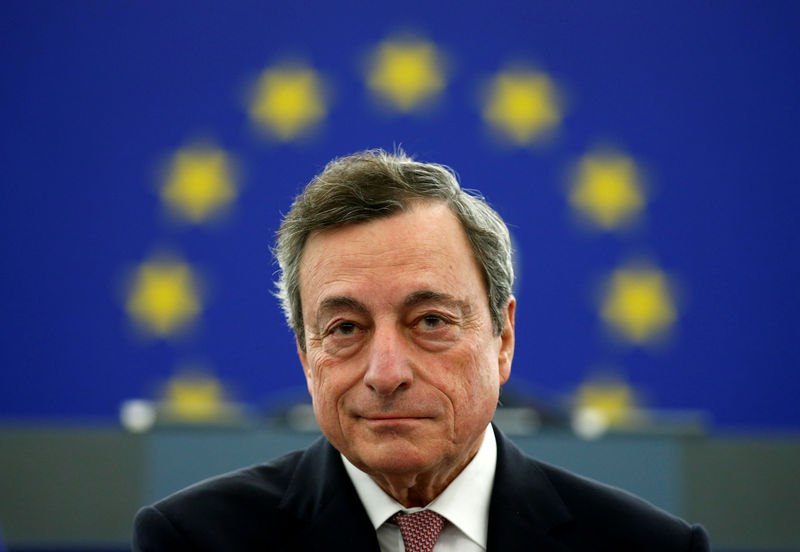(Bloomberg) -- European Central Bank President Mario Draghi warned that the euro-area economy faces agglomerating risks including Brexit and the danger that trade protectionism could hurt confidence.
Draghi said recent figures confirm a “slowing growth momentum” as global issues dent sentiment. He added that the ECB will consider whether it needs to mitigate any of the side-effects from its negative interest rates, speaking after the institution kept its key rates unchanged with its deposit rate held at minus 0.4 percent.
The president also said the ECB is “fully committed” to restoring inflation to its goal of just under 2 percent. The central bank has promised a new round of cheap funding for banks later in the year, but is holding off from announcing details. It’s “too early” to decide on negative rates or on the criteria for bank loans, with a decision coming at a “forthcoming meeting,” Draghi said.
Right now, the question is whether the economy stabilizes or the slowdown that dominated much of 2018 continues throughout this year.
There’s still plenty to worry about, including Donald Trump’s trade threats, Italy’s precarious fiscal situation and uncertainty over when and how the U.K. will leave the European Union. As Draghi spoke, EU leaders were gathering in Brussels for an emergency meeting at which they may force Britain to delay its departure from the bloc for as much as a year.
IMF Outlook
Draghi noted that protectionist threats have so far largely failed to become reality but that “even the fact that these threats are being vented with some frequency will still undermine general confidence.”
The IMF cut its forecasts for euro-area growth on Tuesday as it also lowered its outlook for the global economy.
Yet U.S. economic growth is also slowing, and the Federal Reserve is on what might be a prolonged pause in its tightening cycle. It’ll publish the minutes of its March meeting later on Wednesday. While markets see a chance of a cut, Fed officials have indicated the threshold for such action is far from being crossed just yet.
Draghi oversaw a halt to euro-zone quantitative easing just over three months ago, but has since seen the euro-area economy weaken -- particularly in Germany, the region’s largest economy. He and his colleagues say lower unemployment and better wage growth will help domestic demand, offsetting some of the global slowdown that’s hit industry.
In addition to the new round of long-term loans, Draghi has said the ECB could look at ways to mitigate the impact of negative rates on bank profitability. Some say that policy harms rather than helps lending to companies and consumers.
